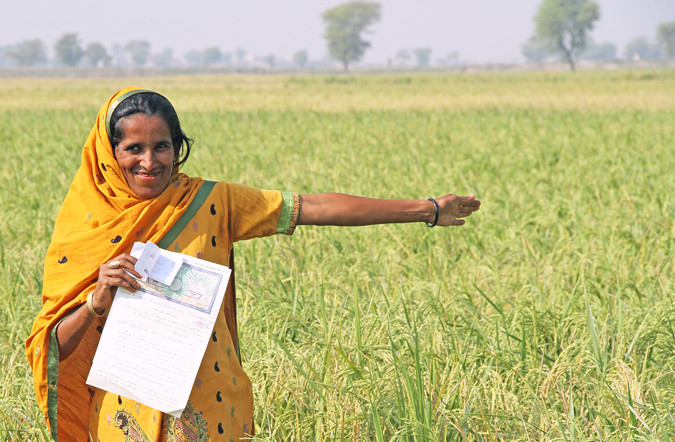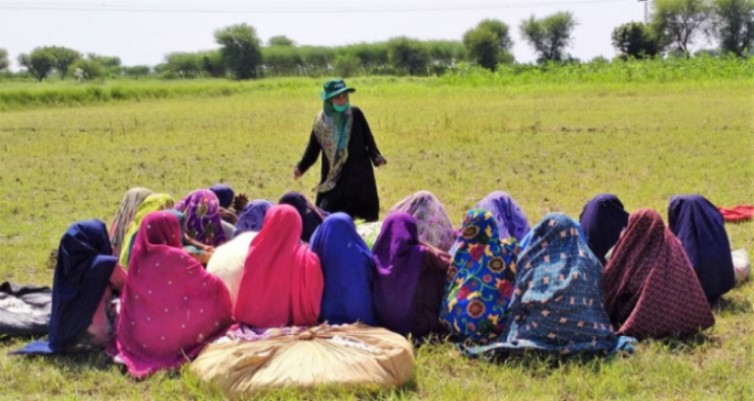Project Proposal
Rights of Small Farmers Women Awareness
The project proposal aims to address the challenges faced by small farmer women in Pakistan regarding their rights and create awareness among them.
For getting a complete proposal you can contact us at
Contact: gdn100@gmail.com / What’s App Us:+923082792040 and pay the price of your desired project.
Product Description
Executive Summary:
The project proposal aims to address the challenges faced by small farmer women in Pakistan regarding their rights and create awareness among them. It recognizes the inequalities and limited access to resources and opportunities that hinder the empowerment of women in agriculture. The project intends to educate and empower these women regarding their rights, enabling them to claim their entitlements, improve their social and economic standing, and contribute to sustainable agricultural development.
Challenges in Pakistan:
In Pakistan, small farmer women face numerous challenges, including limited access to land, financial resources, information, and decision-making power. They often lack awareness of their rights as farmers and face discrimination in accessing agricultural support programs. As a result, they are unable to maximize their potential and contribute fully to the development of the agricultural sector.
Need for the Project:
The project is necessary to address the pressing need for creating awareness among small farmer women in Pakistan about their rights. By equipping them with knowledge and tools to claim their entitlements, we can empower them to overcome the challenges they face and improve their socio-economic conditions. This will also contribute to sustainable agriculture and the overall development of rural communities.
Objectives:
1. Raise awareness among small farmer women about their rights in agriculture.
2. Improve their knowledge about available agricultural support programs, government schemes, and resources.
3. Enhance their capacity to organize and advocate for their rights at the community and policy levels.
4. Promote gender equality in agriculture, ensuring women’s participation in decision-making processes.

Activities:
1. Conduct workshops, training sessions, and awareness campaigns to educate women about their rights in agriculture.
2. Provide capacity-building sessions on agricultural practices, financial literacy, and entrepreneurship to enhance women’s skills.
3. Facilitate networking opportunities among small farmer women to create a supportive community and exchange knowledge and experiences.
4. Collaborate with local authorities, agricultural extension services, and NGOs to facilitate access to government schemes and resources.
5. Assist women in forming self-help groups and farmer cooperatives to strengthen their collective bargaining power.
6. Engage in advocacy efforts to promote women’s rights in agriculture at the policy level.
Implementation Plan:
1. Conduct a needs assessment to identify the specific needs and challenges of small farmer women in the target areas.
2. Develop program materials, including training modules, awareness materials, and advocacy tools.
3. Identify and train local staff and volunteers to facilitate the project activities.
4. Establish partnerships with local organizations, government agencies, and community leaders to ensure effective implementation and sustainability.
5. Organize workshops, training sessions, and awareness campaigns in targeted rural communities.
6. Follow-up with mentoring and support to track progress and address any issues or challenges faced by women participants.
Outcomes of the Project:
1. Increased awareness among small farmer women about their rights in agriculture.
2. Enhanced capacity among women to access agricultural support programs and resources.
3. Improved agricultural practices and productivity among small farmer women.
4. Increased participation of women in decision-making processes at the community and policy levels.
5. Strengthened networking and collaboration among small farmer women for collective action.
Beneficiaries:
The primary beneficiaries of this project are small farmer women in rural areas of Pakistan. By empowering them with knowledge and resources, they will be able to improve their socio-economic status and contribute to sustainable agriculture. Additionally, their families, communities, and the agricultural sector as a whole will also benefit from their increased participation and contribution.
Monitoring and Evaluation:
The project will have a monitoring and evaluation plan in place to assess its implementation and impact. Regular monitoring will track the progress of the activities, ensure their effectiveness, and address any challenges or issues that arise. Evaluation will be done through surveys, interviews, and qualitative assessments to gauge the outcomes and impact of the project on women’s empowerment and sustainable agriculture.
Sustainability of the Project:
To ensure the sustainability of the project, efforts will be made to establish partnerships with local organizations and government agencies. These partnerships will help to integrate the project activities into existing programs and policies, ensuring their continuation beyond the project duration. Additionally, the capacity-building and networking aspects of the project will help create a support system among small farmer women, enabling them to sustain their knowledge and practices even after the project has concluded.
Conclusion:
The Rights of Small Farmers Women Awareness project aims to empower small farmer women in Pakistan by creating awareness about their rights in agriculture. Through targeted activities, capacity-building, and advocacy efforts, the project seeks to improve their socio-economic conditions and promote sustainable agriculture. By investing in women’s empowerment, we can ensure a more just and inclusive society, where women have equal access to un resources, decision-making power, and opportunities in the agricultural sector.

BUDGET
1. Awareness Materials:
1.1- Printing of brochures/pamphlets: $200
1.2- Production of posters: $150
1.3- Design and printing of banners: $100
1.4- Creation of informational videos: $500
2. Media Outreach:
2.1- Radio advertisements: $300
2.2- Local newspaper advertisements: $200
2.3- Social media ad campaign: $400
3. Public Events:
3.1- Venue rental for workshops: $300
3.2- Equipment rental (projectors, microphones): $100
3.3- Refreshments for participants: $150
4. Transportation and Miscellaneous:
4.1- Travel expenses for project coordinator: $200
4.2- Local transportation for team members: $150
4.3- Miscellaneous expenses: $100










Reviews
There are no reviews yet.